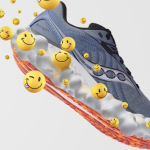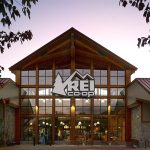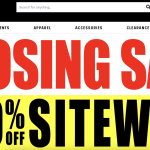Canadian Tire Corp, the parent of the Canadian Tire chain, the Helly Hansen brand, and retailer Sport Chek, reported a drop in quarterly revenue, as demand for sporting goods and home improvement items slowed at its stores. The retailer also said it was withdrawing its previously disclosed financial targets for 2022-2025 as it battles high inventory costs and strained consumer spending.
“Our second quarter results marked a turning point in the Canadian economy,” said Greg Hicks, president and CEO of Canadian Tire, on a call with analysts.
He noted that Canadian Tire had at the start of the year warned that the company expected a “more constrained demand environment,” specifically in the first six months of 2023. However, 10 interest rate hikes in less than 18 months and persistent inflation impacting the cost of living and leading to reduce savings are driving “increased financial strain and tougher spending decisions” for Canadian consumers.
He said the retailer’s Triangle Rewards and credit card data show these macro pressures are affecting spend across many external categories. Hicks said, “This trend which we’ve been observing over the last few quarters. accelerated in the latter half of Q2, especially the last few weeks of June. The spend per cardholder in Q1 was flat relative to last year, but Q2 marked the first quarter since 2020 that saw a decline in spend. Spend categories including home gas, electronics and clothing are now declining. And stalwarts like travel, dining and grocery experienced significantly lower growth rates as the quarter progressed.”
Within its own retail business, Canadian Tire is seeing a “real performance bifurcation between essential and discretionary categories,” with sales of essential items including automotive parts, pet care items and kitchen cleaning products up more than 6 percent at CTR, the flagship Canadian Tire chain, while discretionary sales are down more than 3 percent.
“Spending on higher ticket items started to get squeezed and customers prioritize essential products over discretionary ones. As you would expect this has had a bigger impact on sales at CTR compared to our other banners.”
Retail revenue was CN$3.90 billion (U.S. $2.9 billion), a decrease of 4.2 percent. Consolidated comparable sales were up 0.1 percent, following 5.0 percent growth in Q2 2022.
CTR’s retail comparable sales were up 0.1 percent, with a sales mix shift to more essential and value offerings. Automotive and Living grew, offsetting declines in Seasonal and Gardening, Playing and Fixing.
SportChek’s comparable sales were up 0.1 percent. Team sports and lifestyle footwear grew, while athletic apparel and outerwear were down. SportChek’s retail sales decreased 0.2 percent. The segment includes SportChek, Hockey Experts, Sports Experts, National Sports, Intersport and Atmosphere.
Mark’s comparable sales were up 0.4 percent, with industrial and casual footwear growing ahead of other categories and offsetting casualwear declines against strong growth in Q2 2022. Mark’s retail sales increased 0.1 percent over the same period last year.
Helly Hansen revenue was down 2.9 percent compared to the same period in 2022.
Hicks said changes in Canada’s monetary policy are softening consumer spend across the country with the last two interest rate hikes specifically creating a more pronounced demand impact in discretionary categories.
“Overall, the macro-economic environment and consumer demand differ significantly from our expectations when we set out our strategy in early 2022,” said Hicks. “Given this and further to the noticeable slowdown in sales in the second quarter, we have decided to withdraw our previously disclosed financial aspirations at this time.”
He added, “It is unclear whether the monetary policy tightening has ended. By the end of Q4, we hope to have a better view of the long-term macro environment and interest rate impacts and expect at that time to be in a better position to provide an update on our long-term aspirations.”
Lower retail sales, as well as investments the company is making in the business, led to a decline in profits.
Canadian Tire’s net income declined to CN$126.9-million, or CN$1.77 per share, in the second quarter, compared to CN$177.6-million, or CN$2.45, in the same period the prior year. That 28.5-percent decline in profit included CN$74.6-million in costs related to a March 15 fire at one of the company’s largest distribution centers in Brampton, Ontario. The decline also included a CN$33.3-million retroactive tax charge in Canadian Tire’s financial services segment. Normalized diluted earnings, excluding those costs, declined 1 percent.
Last year, the company provided a forecast that it would achieve 4-percent average annual sales growth on a comparable consolidated basis by 2025. The forecast also set a target to more than double its diluted earnings per share from 2019 to 2025, to reach more than CN$26 per share.
In addition to the macroeconomic trends, wildfires across the country caused consumers to pull back on purchases of items such as patio furniture, bicycles and party supplies although purchases of air filters went up.
Hicks stressed that despite withdrawing its sales targets, Canadian Tire remains committed to the company’s ”Better Connected” strategy and confident in growth prospects.
“Our ongoing commitment to our Better-Connected strategy further positions us to deliver value over the long term as the investments we are making in our stores and digital capabilities continue to outpace expectations,” said Hicks. “Although spending may be down, store traffic as CTR remains flat, indicating that customers even with less to spend continue to choose us for their purchases, reflecting our sustained relevance and their trust in us. We are continuously adjusting our tactics while staying true to our Better-Connected strategy.”
Photo courtesy Sport Chek
















